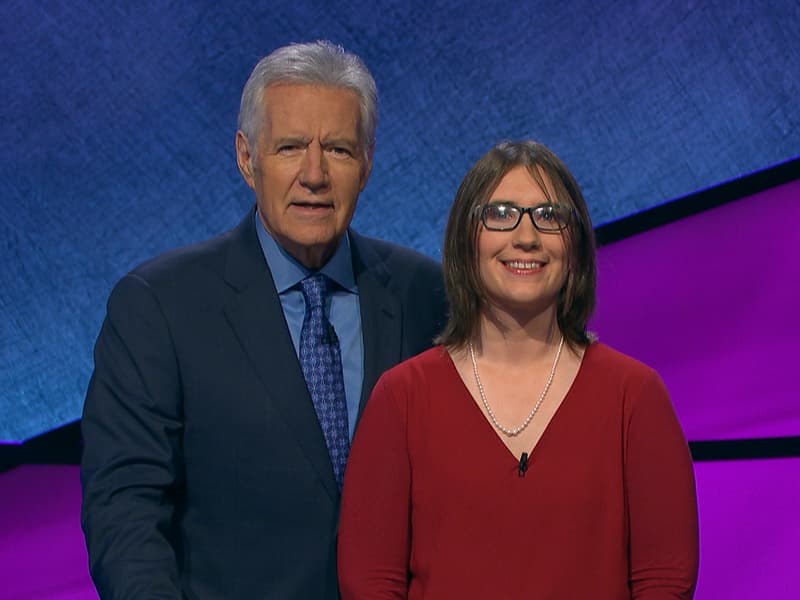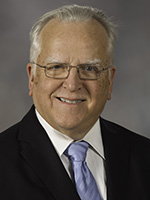Jeopardy! competitor, UMMC experts lend perspective to host's diagnosis

When Karen Bascom finished third after competing on “Jeopardy!” – mind you, she didn’t miss a single question she answered during a tough 30-minute match – she walked away with fond memories of America’s favorite quiz show host, Alex Trebek.
The show aired Feb. 11. On March 7, the man revered as the face of “Jeopardy!” since 1984 announced he’d just been diagnosed with stage 4 pancreatic cancer.
“He looked just like he does when we watch ‘Jeopardy!’ on TV,” said Bascom, a research editor-writer in the University of Mississippi Medical Center’s Division of Public Affairs whose episode was taped Jan. 15 at the show’s Culver City, Calif., studio. “He seemed all right.
“But that was two months ago, and he said he really only got the diagnosis last week,” Bascom said. “I don’t know what his prognosis is, but he says he’s going to fight it and keep working.”

There’s really no early detection of pancreatic cancer, and often, like in Trebek’s case, it comes as a surprise, said Dr. John Ruckdeschel, professor of hematology/oncology and director of the UMMC Cancer Institute.
“There’s no X-ray. There’s no blood test,” he said. “When it grows in the area of the pancreas, there’s a lot of free space. It can get pretty big before you show any symptoms.”
Symptoms generally arise from the part of the pancreas that aids in digestion, he said. “When you have any persistent pain in your middle to upper abdomen, get it checked,” Ruckdeschel said. “If you have unexplained weight loss, you need to get it checked.”
Typically, chemotherapy is the first line of treatment for pancreatic cancer, said Dr. Shannon Orr, associate professor of transplant surgery. “You go from there,” he said. “If you get better, that’s good, but typically, surgery and radiation are not options for stage 4 pancreatic cancer. People who keep a positive attitude and who are encouraged to fight definitely do better.”
Bascom, a Vermont native and UMMC employee since 2015, has watched Trebek hosting “Jeopardy!” her entire life. She was barely an elementary-schooler when she began her quest to become a contestant.
“I’ve tried out for the show in one way or another for 15 years,” said Bascom, who just turned 29 and introduced herself on the show as “a science writer from Vicksburg, Mississippi.”
Since the taping, Bascom said, she’s been even more tuned in to the online ‘Jeopardy!’ community. Its members are “distraught and upset about Alex’s diagnosis. We are really pulling for him.”
Trebek’s frankness about his illness doesn’t surprise her. “He’s had health scares before,” she said. “When he was taping our episode, he talked about his family and his dog with the audience, and what he’s up to. People asked him personal questions.”
Few celebrities experience pancreatic cancer, Ruckdeschel said. “But certainly, when we have celebrities call attention to it, it’s a good thing” for awareness.
“It was brave of him to get out there and say, ‘I’m in trouble, but I’m going to keep going,’’’ Ruckdeschel said. “It’s nice to see someone do that, rather than scurry off the stage.”


